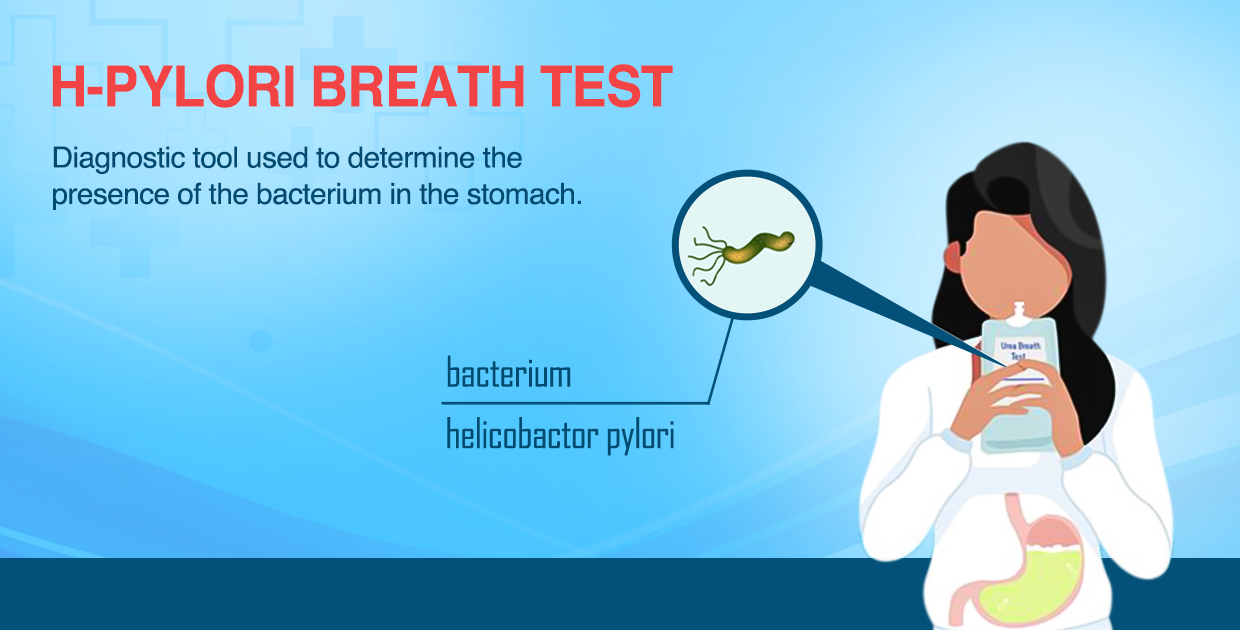What is H. pylori?
Helicobacter pylori (H.pylori) is a spiral-shaped bacterium that is commonly found in the human stomach and is considered a major cause of gastritis and peptic ulcer disease. H.pylori infection is one of the most widespread bacterial infections in the world, affecting up to 50% of the world's population. The bacterium is often acquired in childhood and can persist for a lifetime without proper treatment. The infection can cause a range of digestive symptoms, such as abdominal pain, nausea, vomiting, bloating, and indigestion. In addition, H.pylori has been linked to more serious conditions, including peptic ulcer disease, gastric cancer, and MALT lymphoma. It is important to diagnose and treat H.pylori infections in order to reduce the risk of these complications and maintain good digestive health.
What does H. pylori breath test do?
The H.pylori test is a diagnostic tool used to determine the presence of the bacterium in the stomach. This test is used to diagnose H.pylori infections, which are associated with gastritis and peptic ulcer disease. In addition, the test can also be used to monitor the effectiveness of treatment for H.pylori infections. The test is quick, simple, and non-invasive, and can provide valuable information for healthcare providers in managing H.pylori infections. Accurate and timely diagnosis of H.pylori is important for reducing the risk of complications and promoting good digestive health.
How the test is performed?
For the test, patients swallow a capsule containing urea made from an isotope of carbon. If H. pylori is present in the stomach, the urea is broken up and turned into carbon dioxide. The carbon dioxide is absorbed across the lining of the stomach and into the blood. It then travels in the blood to the lungs, where it is excreted in the breath. Samples of exhaled breath are collected, and the isotopic carbon in the exhaled carbon dioxide is meas
Why should get H.pylori breath test?
The detection of H. pylori infection is important due to its association with an increased risk of developing peptic ulcer disease, chronic gastritis, and gastric cancer. H. pylori is a bacterium that inhabits the stomach and causes inflammation of the stomach lining. This bacterium is commonly acquired in childhood and can persist throughout life unless treated. In addition to causing digestive symptoms such as abdominal pain, nausea, and indigestion, H. pylori has also been linked to more serious health conditions, including peptic ulcer disease, gastric cancer, and MALT lymphoma. Regular testing for H. pylori can help identify the presence of the bacterium early and prevent the development of these serious conditions. Early detection and treatment of H. pylori infections is important for maintaining good digestive health and reducing the risk of serious complications.
Who should get H.pylori breath test?
Individuals who are experiencing gastrointestinal pain and have signs and symptoms of an ulcer may benefit from testing for H. pylori. These symptoms include abdominal pain, indigestion, feeling of fullness or bloating, nausea, and belching. H. pylori infection is a common cause of peptic ulcer disease, and it is important to diagnose and treat this bacterium in order to reduce the risk of serious complications. The H. pylori test is a quick, simple, and non-invasive diagnostic tool that can help identify the presence of the bacterium and provide valuable information for healthcare providers in managing H. pylori infections. Regular testing for H. pylori can help identify the presence of the bacterium early and prevent the development of serious conditions.
